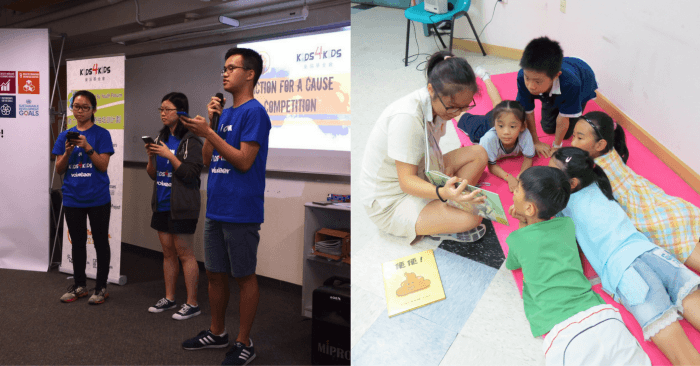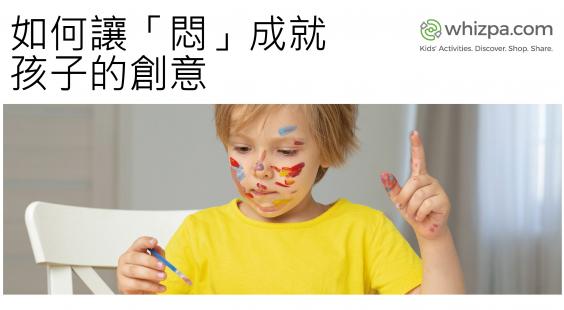
由兒童領導的義工服務
In this age of embracing diversity, we embrace children of all types and personalities. However, there is one quality that parents worldwide endeavour to instill in their kids - the quality of being altruistic. Altruism is a truly valuable virtue of humanity. Altruism is a selfless concern for the welfare of others. Living in an increasingly inter-connected world, altruism becomes an essential quality to strengthen the bonds between people. Volunteering is undoubtedly the best way to foster altruistic qualities in children. Volunteers dedicate time and effort into the servicing of other people in need, and volunteerism continues to be practiced by many kids who are dedicated to making a positive contribution to the world.
The benefits of volunteering are well proven in academia. In a longitudinal study conducted by Rutgers University, psychological researchers Robert Atkins, Daniel Hart and Thomas Donnelly followed the same group of subjects for 10 years to investigate the relationship between personality and volunteering. It was found that the quality of being empathetic, having positive emotionality and the ability to regulate emotions are highly correlated with volunteering behaviour.
Volunteering services are also a great way to fill the niche of needs yet to be fulfilled by public services. Not only do children learn and get rewarded from volunteering, but the beneficiaries will also benefit to a great extent.
Children are not short of opportunities to volunteer. Every once in a while, children will be motivated to participate in ad-hoc volunteering services, such as flag-selling or visiting elderly centres. However, these types of volunteering opportunities do not offer sustained involvement due to their short durations of engagement.
Thanks to a number of dedicated philanthropists in Hong Kong who are passionate about engaging children in voluntary services, children here are blessed with an abundance of long term, children-led volunteering opportunities. These opportunities not only substantiate the impact of any voluntary effort, but also help children reap the most and learn the best from their own voluntary efforts. In contrast to traditional voluntary opportunities that are typically adult-led, children-led voluntary work gives children the autonomy to direct their voluntary projects, and empower them in return.
In this article, we are fortunate to have Pia Wong from Bring Me A Book and Michele Lai from Kids4Kids share with us their insights on the benefits for children to engage in voluntary work.
Bring Me a Book is a non-profit organization and an affiliate of Bring Me A Book™ Foundation, which is an award-winning literacy non-profit headquartered in the USA. Bring Me A Book envisions a Hong Kong in which every child is read to, strengthening family and community bonds and creating a love of learning.
Kids4Kids aims to inspire young people in Hong Kong to take action and make a positive social impact through its platforms that empower kids to enact positive change in their community, from which they can develop social awareness and responsibility.
Michele and Pia similarly regard children’s involvement in volunteering as a learning opportunity. The portmanteau word “Volearnteering” devised by Pia epitomises this idea - merging volunteering and learning.
Michele shares that the biggest benefit for children who engage in volunteering is that they learn about the idea of empathy - thinking beyond themselves is a crucial competence, living in a increasingly interconnected world in which we are all a part of societal repercussions.
Pia also explains that empathy helps children understand how fortunate they are to be living in a prosperous part of the world, which comes with a greater responsibility to help others.
To think less of self and think more for others.
“Volunteering is empowering because children can actually impact society from the help they have offered through direct engagement”, says Michele. In Kids4Kids, children engage in a program called Buddy Reading Program in which kids volunteer to read age-appropriate stories to other children. “Children offer direct reading-related help in the Buddy Reading Program. By seeing the benefits of the program to the beneficiaries, it makes the children feel good and empowered” Michele adds.
“For every book a child has raised, it matters. Nothing is more rewarding than seeing the books they have so thoughtfully raised go to an equally passionate reader who previously had limited access to quality books” Pia points out. “It is also the perfect opportunity to teach children that it is our responsibility to extend our helping hand to those in need. We live in a connected community. Greater ability comes with greater responsibility.”
“Volunteering is an unstructured learning process, unlike the typical classroom learning following a syllabus.” Michele comments that volunteering is an alternative mode of learning, and gives one example of unstructured volunteering learning at Kids4Kids. “We have a program in which we encourage children to create workshops, sharing with other kids their passion, such as chess or hockey. They have the autonomy to organize the workshops themselves without any guidelines.” Michele believes that learning experiences without any guidelines can enable children to put their life skills to test. “We are not afraid of letting them fail. It is part of the learning process. Failing, trying, then eventually succeeding helps them grow into a successful adult.”
Pia points out that volunteering services diversify children’s experiences. “Our kids are heavily involved in library installation programs. They love engaging with children they wouldn’t have a chance to meet otherwise if they were not in the volunteering program.” Pia further comments that the experience of volunteering is a step out of their comfort zone. “They gain new experiences, they learn to speak new languages, they learn about new cultures. Volunteering opens up children to a world other than their usual social circles.”
Michele and Pia are founders of charitable organisations that give children a lot of autonomy in organizing voluntary services. It is not surprising that they have both witnessed the growth journeys of a lot of children. Both of them shared with us some remarkable positive changes they had seen first-hand in children who had engaged in charity services.
“There was a boy who was about 11 years old when he started coming to our charity programs. Confused about volunteering, he initially came only for a treat his mother would get him after each volunteer session,” says Michele as she recalls the memorable learning journey of a boy who is now an active member of Kids4Kids. “After only 2 months, he told his mom he would want to come volunteer even without the tasty treat. Now, he is 17 years old already. 6 years have gone by, and he has transformed into being genuinely passionate about charity work, and continues to be an active member of Kids4Kids.” The story Michele shared with us shows how charity work can uncover an inherent passion and generosity within children for helping others.
Pia tells another impressive story of a boy finding a new passion through his charity work. “There was once a 6-year-old boy who started to join our book making workshop. Through that experience, he realised he had a talent for story writing and illustrating. He then started making books himself, and selling them for charity purposes” Pia says, as she shares with us the journey of a child volunteer who now aspires to become an illustrator. “Every single book he creates, he is making an impact.” Pia believes that volunteering helps children see the power they have to make the world a better place. She further comments on how volunteering opens children up to endless possibilities. “Some children are able to unveil talents and find a lifelong hobby from volunteering services. Using new-found talent to give back to society is the most rewarding way to create a positive impact.”








